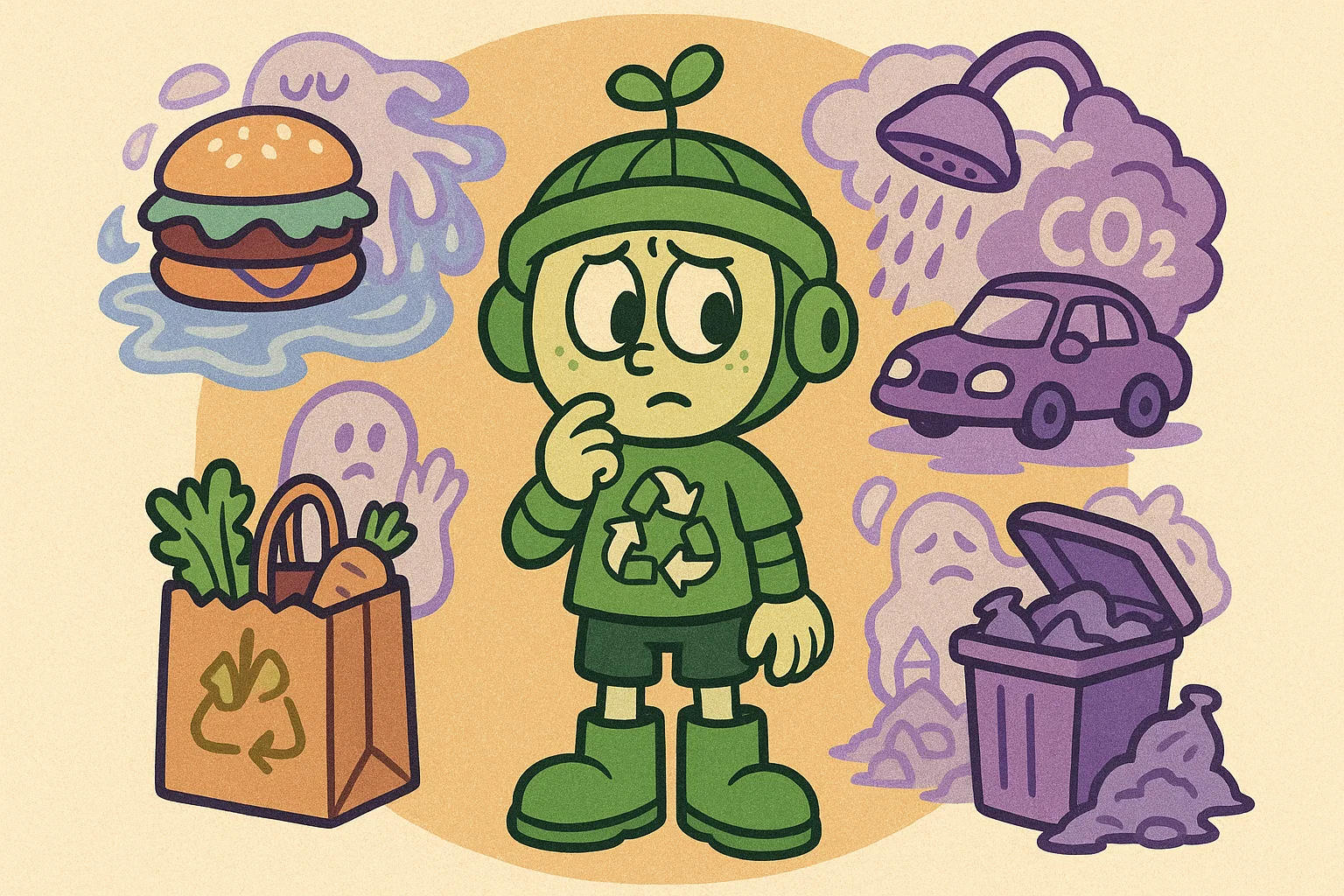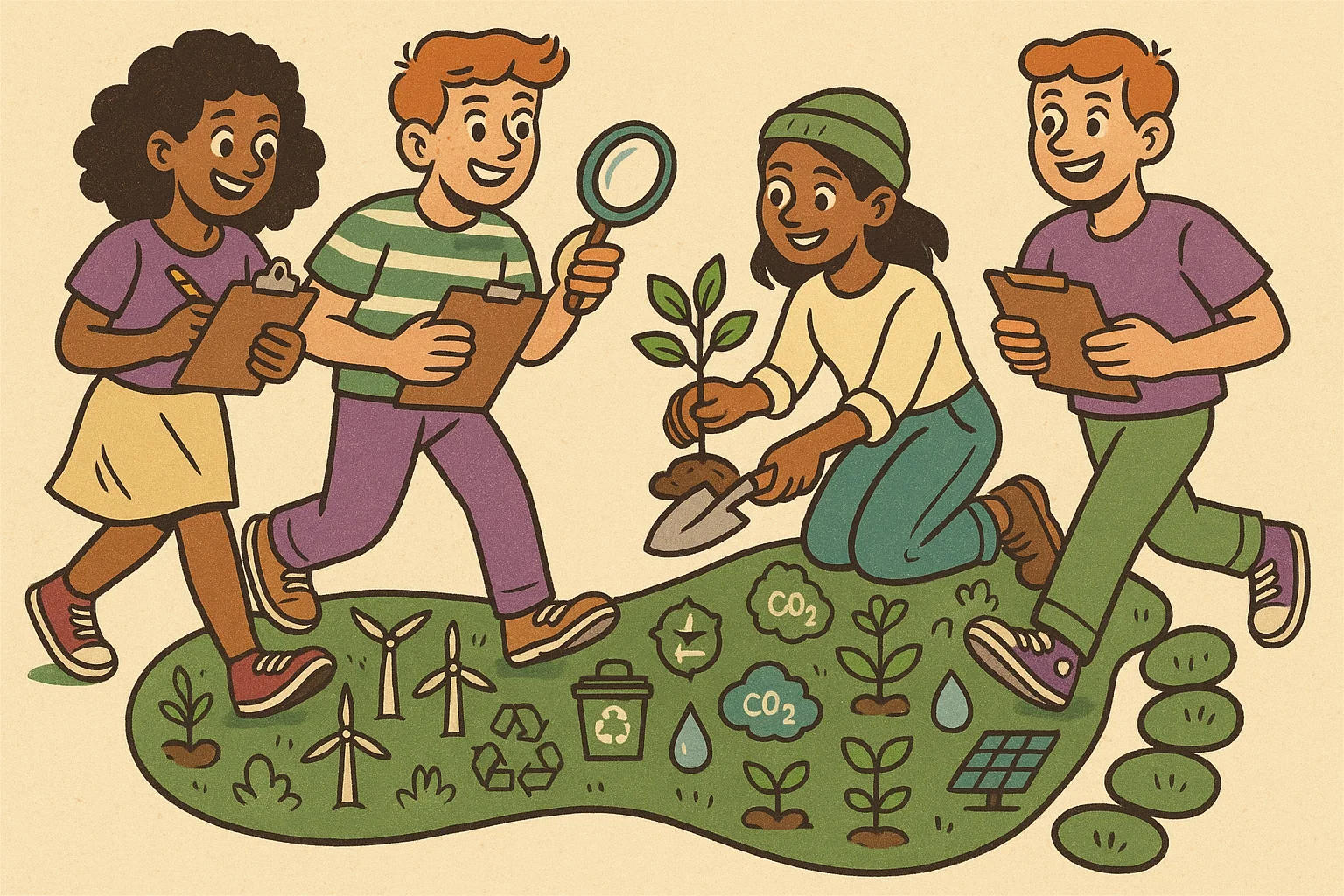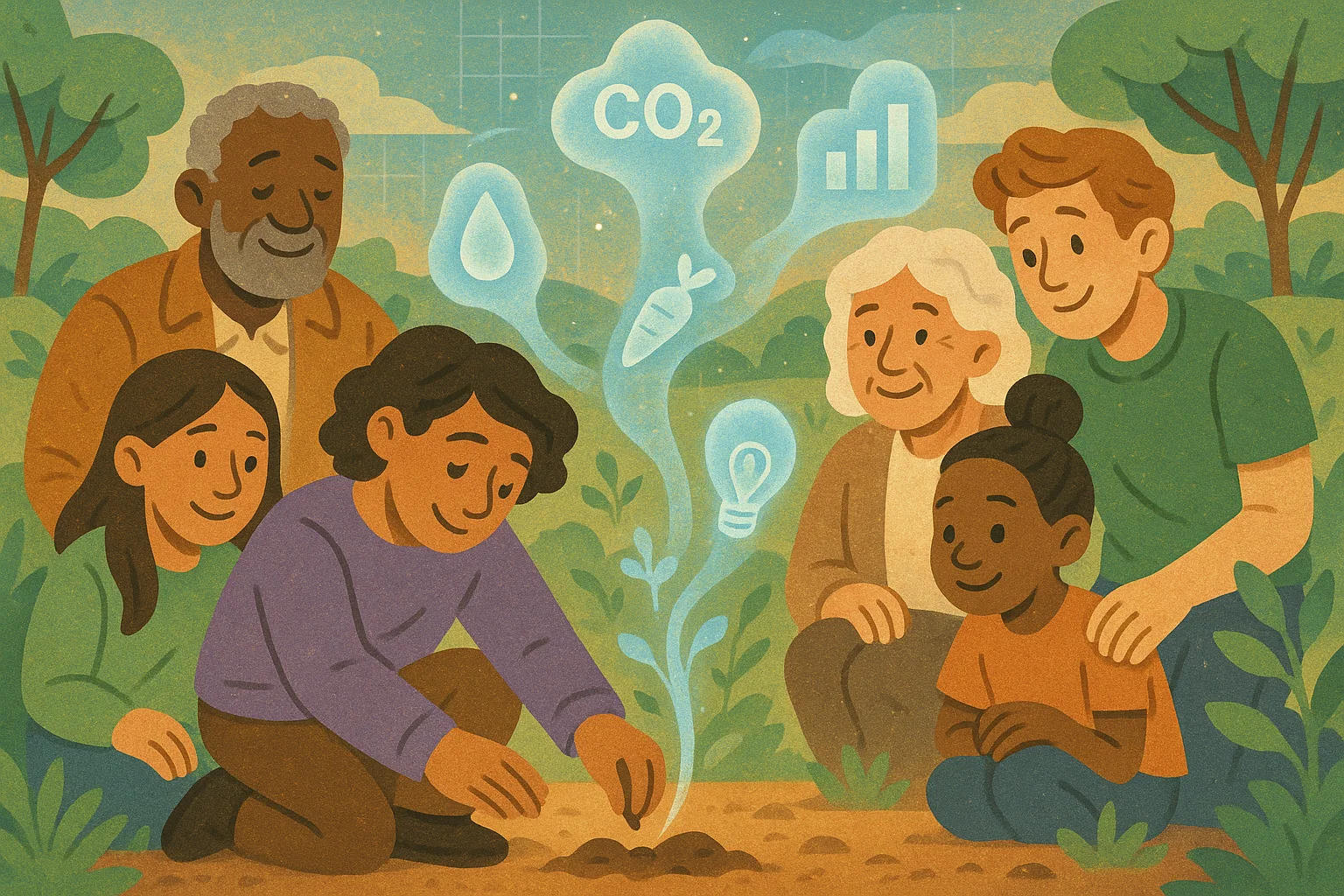Ecology isn’t just for scientists, activists, or policy makers — it’s about how each of us interacts with the planet every day. From the food we eat to the energy we use and the trash we toss, our daily habits shape the world we live in. The good news? We have more power than we think. With the right awareness and tools, even small lifestyle changes can ripple into real environmental impact. This page is your starting point — a space to understand how your choices connect with the Earth, and how to make smarter, more sustainable decisions moving forward.
The Hidden Impact of Ordinary Life
It’s easy to assume that meaningful ecological change requires grand gestures — going off-grid, planting forests, or lobbying governments. But in reality, the biggest shifts often begin with quiet, everyday moments.
Think about this:
-
A 30-minute drive in an average car emits around 6–8 pounds of CO₂.
-
That beef burger you had for lunch? It took over 1,500 gallons of water to produce.
-
A 10-minute hot shower can use up to 25 gallons of water — more if your water heater’s inefficient.
These aren't random facts — they're small clues to a bigger picture. And most of us have asked questions like:
“How much waste do I really produce in a week?”
“Is my grocery shopping habit adding to the climate crisis?”
“Does it even matter if I recycle or eat less meat?”
Yes — it matters. And it’s not about feeling bad. It’s about knowing where you stand so you can move forward with clarity.

What You Do vs. What You Can Change
Let’s break it down. Most of us don’t live wasteful lives on purpose — we just live modern lives. But when we zoom out and look at our habits in context, patterns emerge. Some of those patterns are surprisingly easy to shift, especially once we know where our personal “ecological hotspots” are.
Here are a few areas where daily choices add up — and where small improvements make a measurable difference:
Your Carbon Footprint
This is the total amount of greenhouse gases your activities produce — measured in tons of CO₂ per year.
|
Activity |
Estimated CO₂ Output (per year) |
|
Home electricity and heating |
3–4 tons |
|
Driving 12,000 miles/year |
~4.6 tons |
|
Flying 2 short-haul roundtrips |
~1 ton |
|
Meat-heavy diet |
2.5–3 tons |
A carbon footprint calculator can help you break these numbers down — not just overall, but by category: travel, food, home energy, and more. That’s when things get interesting, because you start to see where your impact is biggest — and where it’s easiest to adjust.
Water Use in Daily Life
Most of us use more water than we think — and not just from the tap. There’s water “embedded” in nearly everything we buy, eat, or wear.
Quick facts:
-
A leaky faucet can waste up to 3,000 gallons/year.
-
Washing dishes by hand uses ~20 gallons per load (vs. 5–6 with a dishwasher).
-
A single cotton T-shirt takes ~700 gallons of water to produce.
Shifting to low-flow appliances, repairing leaks, and being mindful of water-intensive products (like fast fashion) can significantly reduce your footprint. A water usage calculator is a great way to estimate how much you’re using — and where it’s going.
Waste, Recycling, and Materials That Matter
You’ve probably wondered: “Does separating my recycling really do anything?”
The answer? Yes — especially with the right materials.
|
Material |
Recycling Benefit |
|
Aluminum cans |
Saves 95% of energy vs. new production |
|
Paper & cardboard |
Saves trees, water, and landfill space |
|
Glass |
Can be recycled endlessly without quality loss |
|
Plastic |
Tricky — often downcycled, not recycled infinitely |
Composting, buying in bulk, and choosing reusable over disposable are all habits that chip away at waste. The impact isn’t always visible day-to-day — but it’s very real when viewed over months or years.
Small Changes, Real Impact
You don’t have to overhaul your entire lifestyle to live more sustainably. In fact, trying to “do it all” often leads to burnout and guilt. The better path? Start small, stay consistent, and build habits that feel manageable — even easy.
If every household reduced just 1 ton of CO₂ per year, the U.S. alone would cut over 120 million tons of emissions — roughly the same as taking 25 million cars off the road. That’s the power of collective action.

Here are a few everyday shifts that really do move the needle:
-
🍔 Swap one meat-based meal per day for a vegetarian option
→ Saves about 1,000 lbs of CO₂ annually -
🚿 Shorten your daily shower by 3 minutes
→ Saves up to 3,000 gallons of water per year -
🚌 Take public transit or bike to work 2 days a week
→ Reduces your carbon output by ~0.5–1 ton annually -
💡 Switch to LED bulbs at home
→ Uses 75% less energy and lasts 25x longer -
❄️ Set your thermostat 2°F lower in winter, 2°F higher in summer
→ Cuts energy usage without sacrificing comfort
Each of these changes, on its own, might seem small. But over time — and especially when adopted across communities — they drive meaningful, measurable improvement.
And here’s the cool part: tools like a water usage calculator or an ecological footprint calculator let you see those improvements. Not abstractly, but in gallons, kilowatts, and carbon savings. That’s when sustainability becomes more than a buzzword — it becomes personal.
Track It, Understand It, Improve It
One of the biggest challenges people face when trying to “go green” is simply not knowing where to start. It’s easy to feel overwhelmed by climate headlines or assume your actions won’t matter unless you go fully off-grid or zero-waste. But in truth, the journey to sustainable living begins with one key step: awareness.
“Can small lifestyle changes really make a difference?”
“How do I know if I’m actually improving anything?”

These are fair questions — and they deserve real answers. That’s where data becomes your ally. Measuring your habits isn’t about guilt-tripping yourself — it’s about gaining clarity. The clearer the picture, the more confident you’ll feel about where to make changes.
Whether you’re estimating your household’s carbon emissions, understanding how much water your shower uses each week, or checking the impact of your food choices, tools like our ecological footprint calculator give you simple, honest insights into your daily life.
It’s not about being perfect — it’s about being informed. The numbers don’t lie, and when you see them, something clicks:
You’re not powerless. You’re just one smart decision away from progress.
Your Planet, Your Data, Your Choice
You don’t need to be perfect to make a difference — you just need to be curious and willing to start.
Whether you're wondering how much water your habits use, how your commute affects the climate, or whether composting your leftovers is worth it — you're already asking the right questions. And that’s where change begins.
At JetCalculator, we believe that understanding your impact is the first step to reshaping it. Our tools are here to help you measure, reflect, and improve — not just as a user, but as someone who cares about the world we share.
Because when you know better, you choose better.
🌱 Start exploring. Let your everyday choices leave a lighter footprint.
